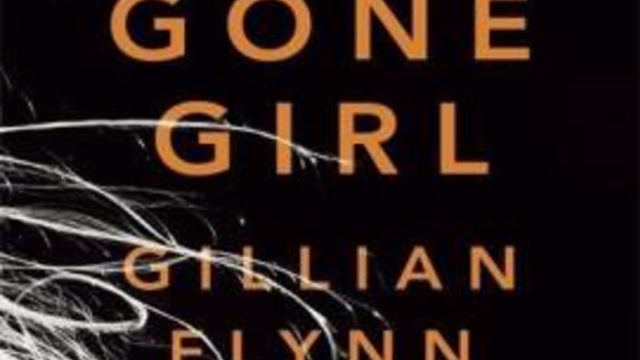You may not have read Gillian Flynn’s Gone Girl or seen David Fincher’s film adaptation, released just two years after the book, but you probably still know the Cool Girl monologue. It comes after a good amount of setup; tension escalates in both book and movie as Amy Dunne, the wife of a local bar owner and part-time college instructor, goes missing. Her husband Nick is concerned about her, but already had his foot out the door of his marriage; he’s having an affair with one of his former students. When Amy’s diary is discovered, it casts doubt on many of Nick’s actions, and the public begins to turn against him. One of Amy’s friends reveals that she was pregnant; one of Amy’s last diary entries flat-out states that she was afraid of Nick.
And then we get to hear Amy’s real voice.
Amy, well aware of her husband’s infidelity and frustrated with her current life, has orchestrated her own disappearance with military precision, weaponizing the anniversary treasure hunt she always treated her husband to and planting the diary in a way that she knew would cast additional suspicion on him. She’s tired of her marriage, too.
You see, she told her husband that she was a Cool Girl, and then, when she started being herself instead, he didn’t want her.
If it hadn’t come more than a decade before, the Cool Girl monologue would almost be a parody of America Ferreria’s “It’s literally impossible to be a woman” speech in Barbie. Play a role to make men happy, and you’re fake. Drop the role, and you’re someone unlovable, unfuckable. Amy grew up as a role: the “Amazing Amy” of her parents’ best-selling books. She became a Cool Girl by, in her words, “pretending to be the woman a man [wanted her] to be.” So Amy finally shakes off the shackles of living by others’ expectations and takes a shot at being her own authentic self.
Amy’s authentic self isn’t very nice. And it’s angry as hell.
She sets up her philandering dirtbag husband to take the fall for her own murder, then makes a break for it. She almost gets away with it too, if it wasn’t for one fatal miscalculation, one that turns her into a murderer and sends her right back to the asshole she married in the first place. But this time, she and Nick have each other’s number. It might not be the recipe for a happy ending, much less a happy marriage, but there’s something deeply satisfying about two people who seem to deserve each other trapped together, maybe forever, in a new bullshit lie they’ve more or less created together. (Am I being unkind to Nick by saying this? Maybe? But Nick also spent Amy’s trust fund on a shitty bar and fucked a twentysomething as his marriage was falling apart and his wife was sinking into depression…before the novel even begins. Let’s not pretend he’s so innocent.)
Gillian Flynn has been praised for her ability to create female characters who remain compelling and magnetic even as they behave monstrously and often unforgivably, and I don’t want to give that short shrift, as that’s absolutely key to her appeal. But I also want to underline how fun it is to get into the head of the irredeemably awful Amy, finally breaking free of all that has been expected of her, trying to stay one step ahead of anyone and everyone who might be seeking her out. Amy’s finally allowed to act on her real feelings, and she’s making it everyone’s problem. (For that matter, it’s also fun to get in the head of Nick as he tries to wrench the public narrative in his favor, and perversely thrilling when he succeeds.)
Gone Girl is a domestic drama turned cat-and-mouse game, with the roles of cat and mouse constantly shifting. Flynn refuses to worry if either of her leads are likable; she’s confident that they’re not, and that confidence is a breath of fresh air compared to many of the “ripped from the headlines” crime novels and TV shows she skewers so effectively. There’s a reason Flynn is often favorably compared to Patricia Highsmith. Gone Girl is a hell of a high wire act, starting as a missing-white-woman story and ending in places I’m pretty sure no reader anticipated. (My mother wasn’t sure she wanted to watch the movie because she was afraid Amy was dead. My kid gave up on the book early, thinking it was going somewhere predictable, and was shocked when I put on Rosamund Pike’s Cool Girl scene. Delightful.)
If you haven’t given the novel a shot, Gone Girl is also just incredibly readable. It’s not just the threat and fulfillment of violence that keeps you turning the page, it’s the voices of Nick, Fake Amy, and Real Amy. Flynn has a wickedly dark sense of humor and an incredible talent for building suspense. And the Cool Girl monologue in the book is funnier, too:
I used to see men — friends, coworkers, strangers — giddy over these awful pretender women, and I’d want to sit these men down and calmly say: You are not dating a woman, you are dating a woman who has watched too many movies written by socially awkward men who’d like to believe that this kind of woman exists and might kiss them. I’d want to grab the poor guy by his lapels or messenger bag and say: The bitch doesn’t really love chili dogs that much — no one loves chili dogs that much!
I certainly don’t. But I might love Gone Girl that much.
Here’s a great interview/profile of Flynn and her work, written before the movie was developed.. I wonder if her mom still mock-threatens people at her readings.


